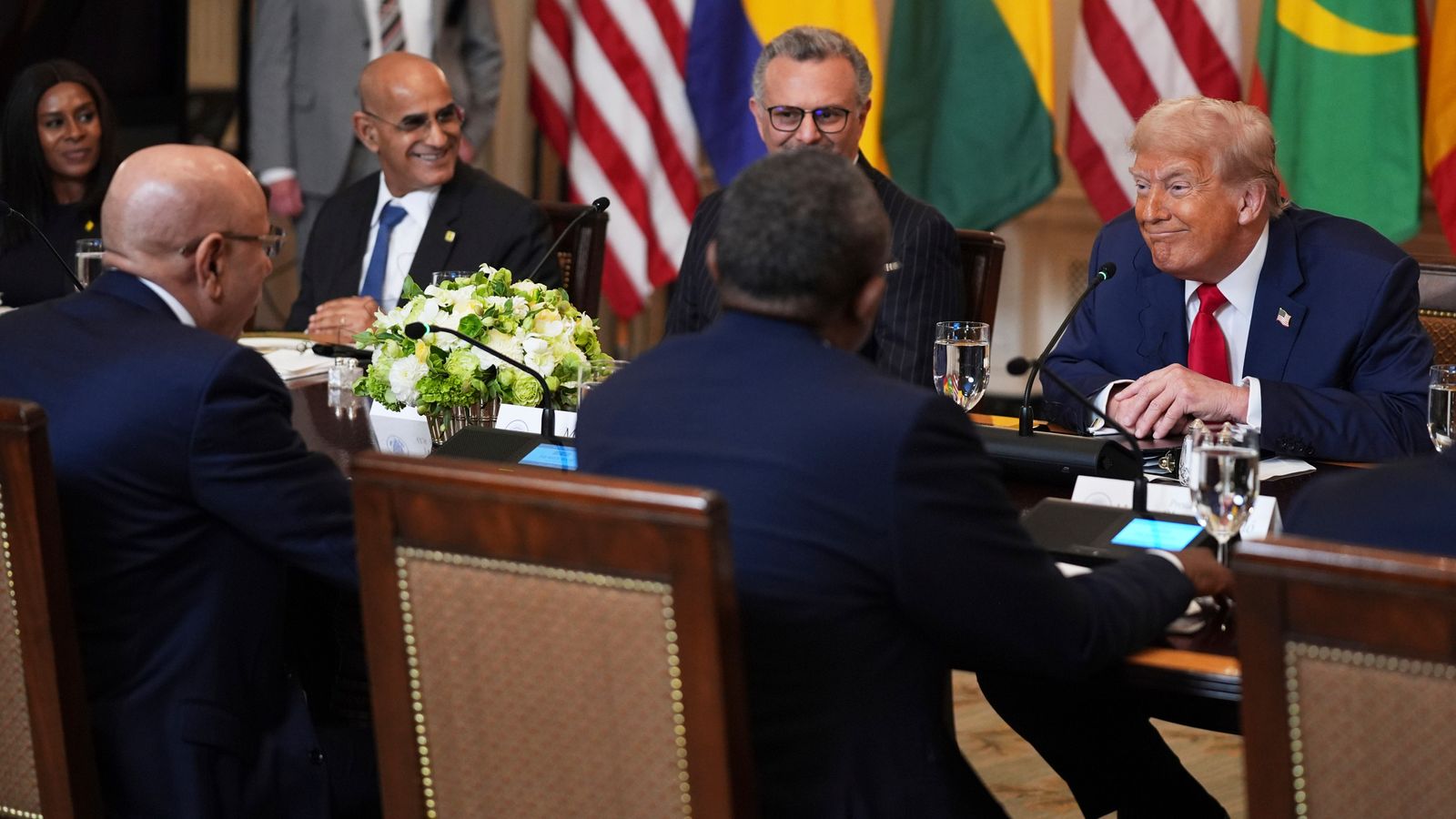At a White House meeting on Wednesday with leaders from several West African nations, U.S. President Donald Trump raised eyebrows when he complimented Liberian President Joseph Boakai on his English-speaking skills, appearing surprised that the leader of Liberia spoke the language so fluently.
“You speak such good English,” Trump told President Boakai after his brief remarks. “Where did you learn to speak so beautifully?” Boakai, chuckling, replied simply, “In Liberia.”
The exchange drew media attention, particularly because English is Liberia’s official language, a fact rooted in the country’s history as a settlement established in 1822 by freed African Americans and formerly enslaved people from the United States. Liberia has maintained strong cultural and linguistic ties to the U.S. ever since.
President Trump continued his remarks by calling Boakai’s English “beautiful” and jokingly said, “I have people at this table who can’t speak nearly as well.” President Boakai did not elaborate further, leaving the moment with a smile.
The meeting, which also included leaders from Senegal, Gabon, Mauritania, and Guinea-Bissau, focused on economic partnerships. President Trump announced a shift in U.S. policy toward Africa—moving from traditional aid packages to increased trade and investment. He described the visiting nations as “very vibrant places with valuable land, great mineral wealth, oil resources, and wonderful people.”
When asked whether he plans to visit Africa, President Trump responded, “At some point, I would like to go to Africa,” but added, “I’ll have to see what the schedule looks like.”
The comment about President Boakai’s English has since sparked discussion online and in diplomatic circles, highlighting the importance of cultural awareness in international engagements.

